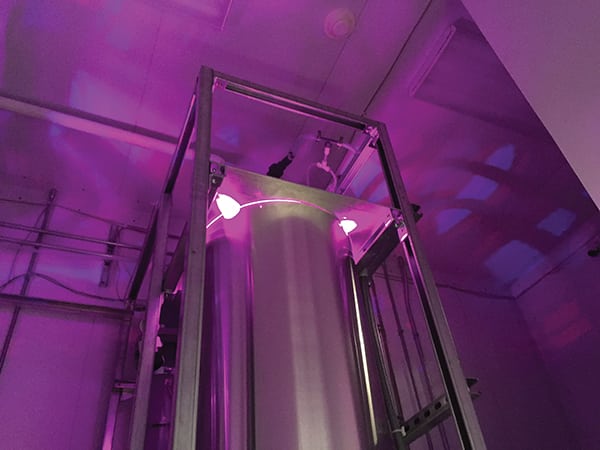A Breakthrough Carbon-Capturing Algae Project
A research photobioreactor designed to capture significant amounts of carbon dioxide (CO2) from power plant flue gas for high-density algae cultivation is showing promise.
The bioreactor patented by California-based algal firm PHYCO2 is undergoing a multi-year trial at Michigan State University’s (MSU’s) T.B. Simon Power Plant, a co-generation plant that provides steam, heat, and power to the university and can fire biomass, natural gas, and coal.
The bioreactor absorbs the CO2 from a slipstream of the plant’s boiler exhaust (Figure 5). PHYCO2 says its technology is set apart from other open and closed photobioreactor systems because it eliminates all possible contamination from outside sources, allowing microalgae to grow indoors 24 hours a day, without sunlight.
The first two-month period of testing showed an algae density of 1.7 g/L, a CO2 absorption rate of 52%, and a productivity rate of 0.34 g/l solution/day—“higher than the algae and production rates found at recently reported studies,” it explained.
The “pure algae strands” cultivated by the process can be used in everyday products, from lipstick to ice cream and gasoline to animal feed. The team is now preparing for a second round of testing, which will focus on doubling their algae density and reaching a productivity rate that is eight times the Phase I rate.
—Sonal Patel, associate editor
